OICA Guides International Students in Exploring Taiwan's Industry and Culture Through Company Visits and Local Activities
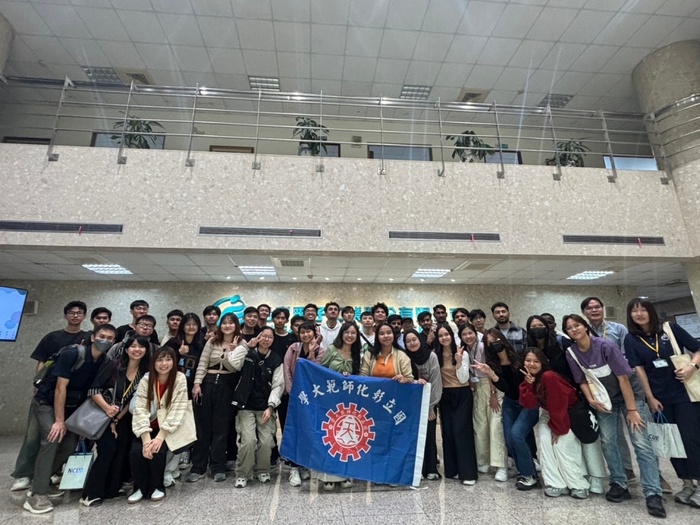
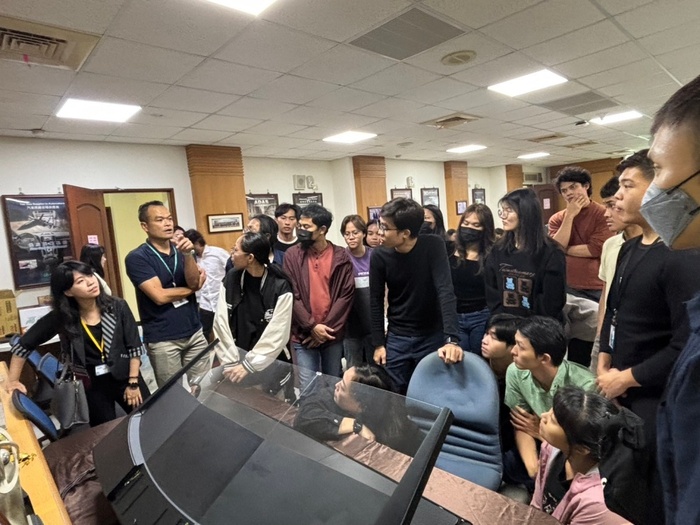
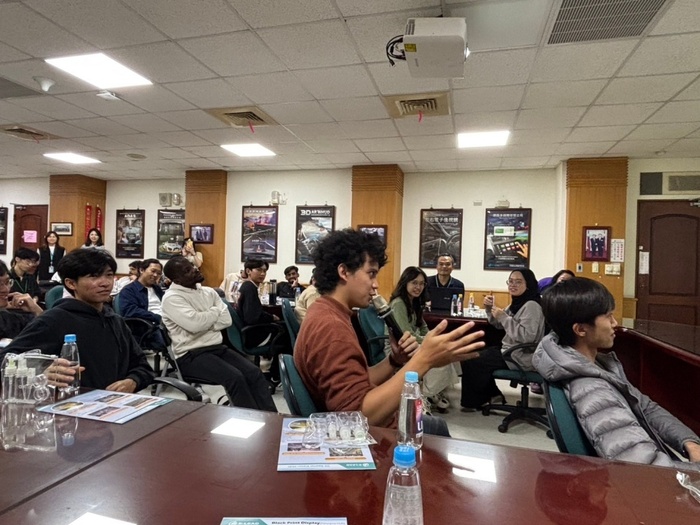
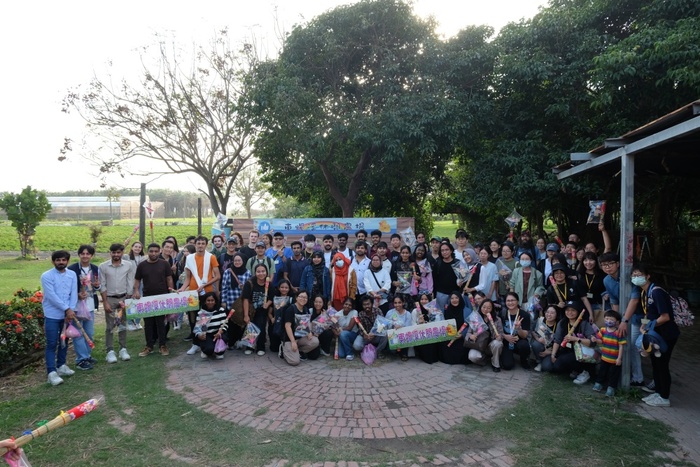
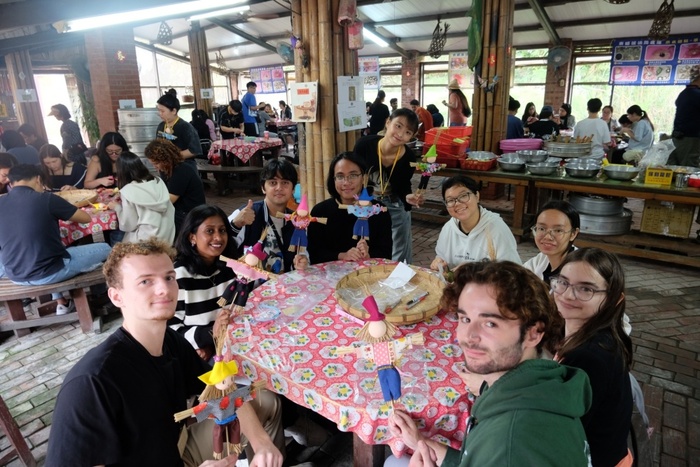
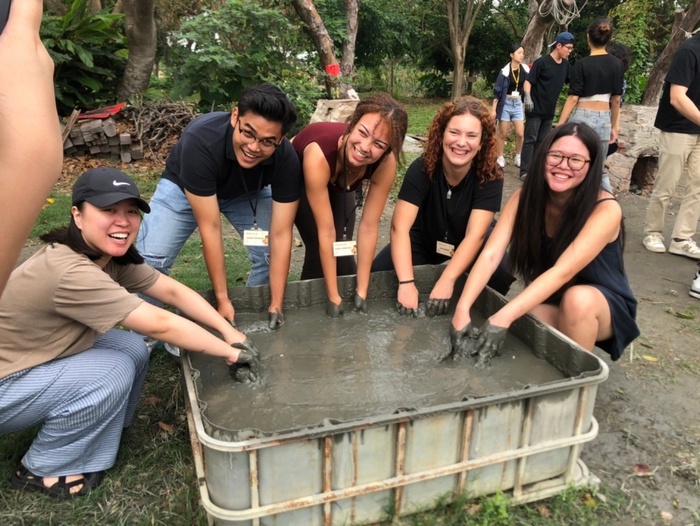
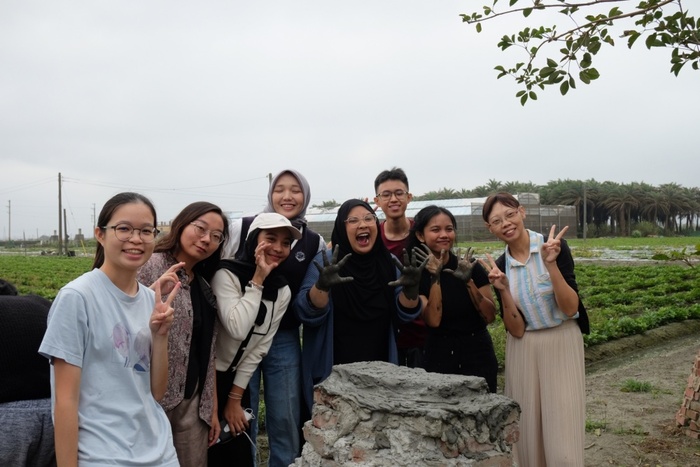
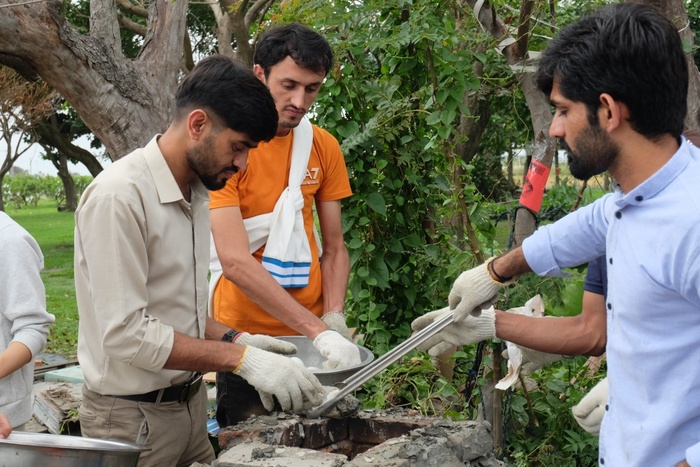
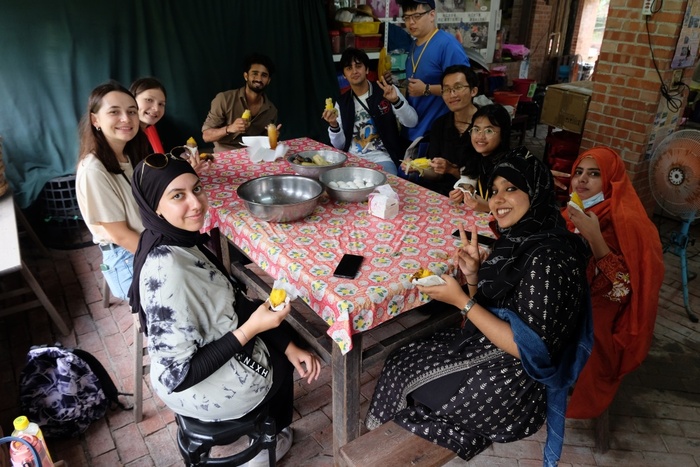
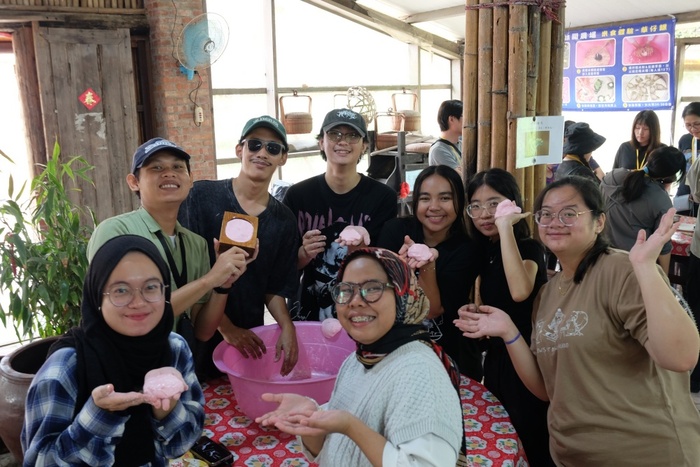
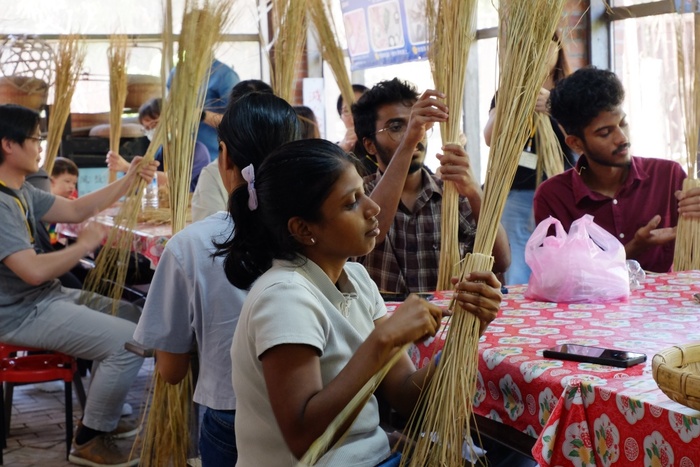
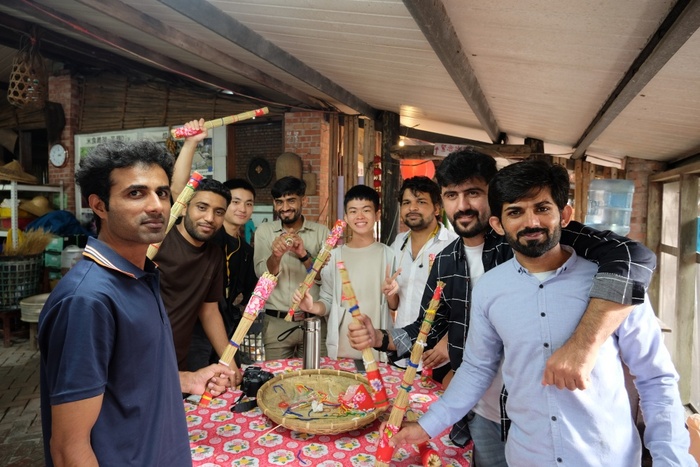
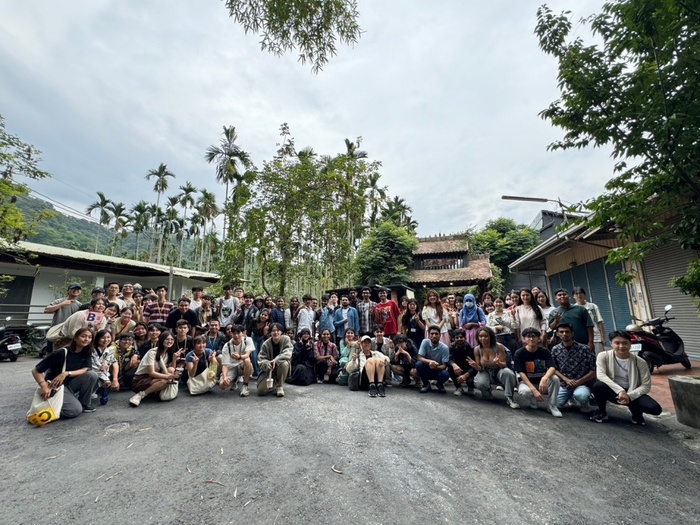
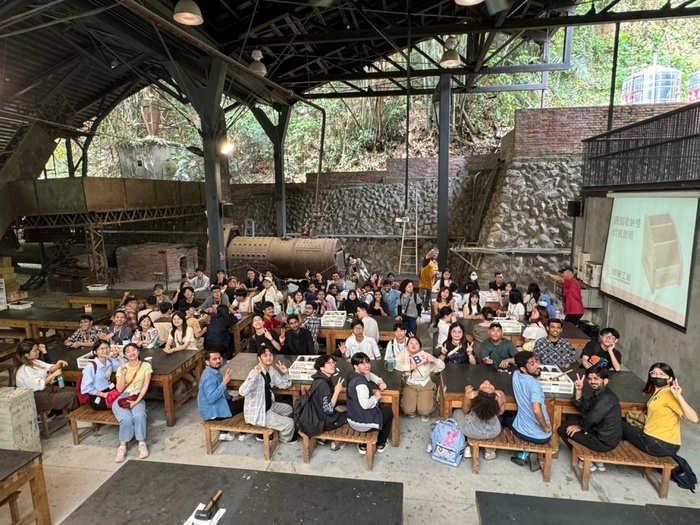
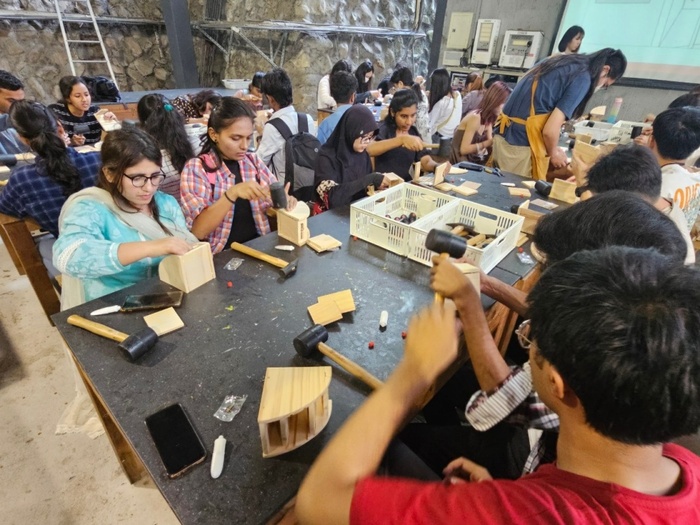
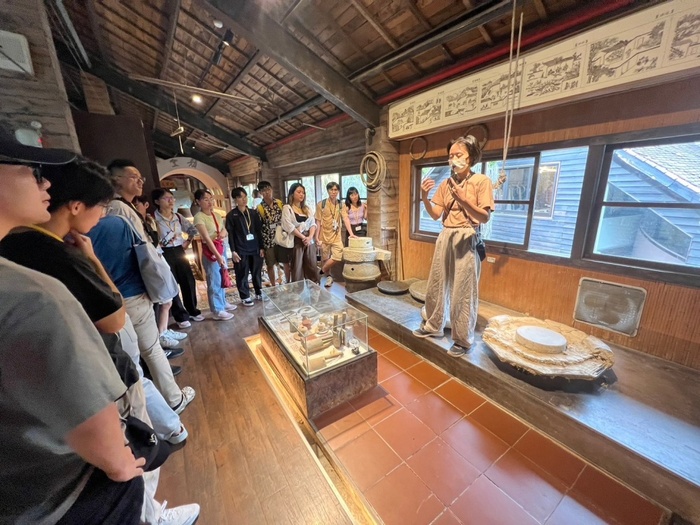
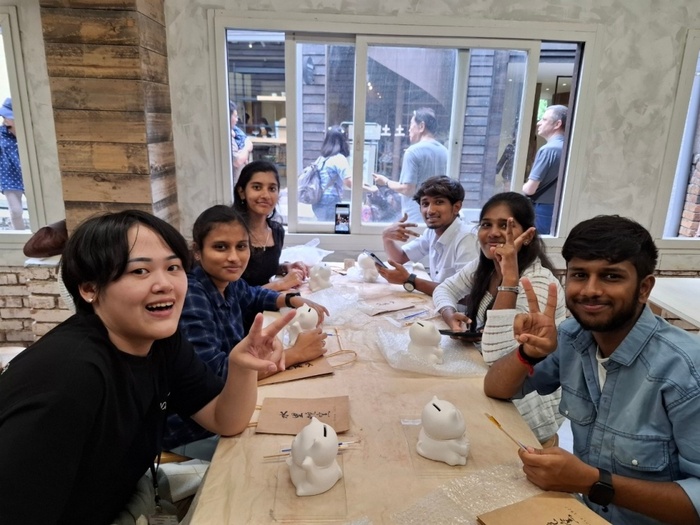
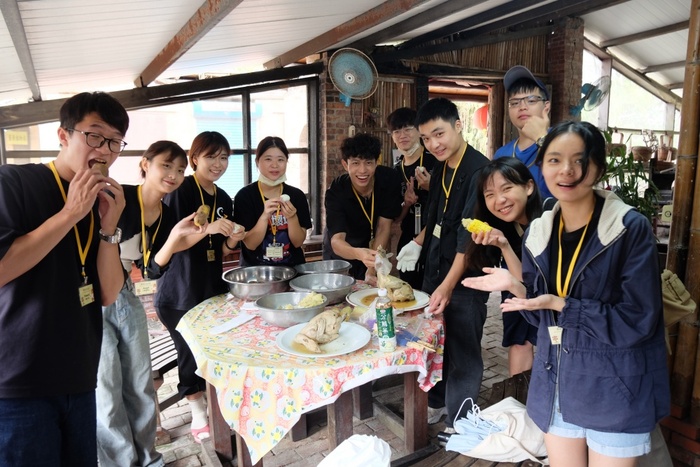
To strengthen the connection between international students and local culture and encourage them to seek employment in Taiwan after graduation, NCUE's International Office (OICA) organized three sessions in 2024, sponsored by the Nation University System of Taiwan (NUST). These included company visits and cultural activities that guided international students from NCUE and other NUST member universities to explore the Changhua Factory of Siliconware Precision Industries Co., Ltd. (SPIL), E-lead Electronics, Erlin Township in southern Changhua, and Shuili Township in Nantou County. Students participated in hands-on activities such as snack-making from rice, woodworking, and ceramic painting, engaging in cross-cultural interactions and deepening their understanding of Taiwan’s culture and industries.
NCUE is one of 14 member universities of NUST, which integrates resources to foster interdisciplinary synergy and enhance institutional development. Current collaborative efforts within the system focus on teaching, research, university social responsibility (USR), internationalization, and library services.
In recent years, the Taiwan government has promoted initiatives encouraging international students to remain and work in Taiwan post-graduation. NCUE's International Office has actively matched international students with industries through academia-industry collaboration programs. In late November, company visits were arranged to provide students with insights into Taiwan’s job market. SPIL, a global leader in IC packaging and testing, and E-lead Electronics, a major developer of automotive electronics headquartered in Changhua, were chosen for their industry excellence and commitment to sustainability, including energy efficiency and waste reduction. SPIL, part of ASE Technology Holding Co., is a recognized leader in sustainable practices within the semiconductor industry, consistently honored by the Dow Jones Sustainability Indices (DJSI).
During the visits, more than 40 international students from NCUE, National Chi Nan University, and National Formosa University toured production lines and testing areas under the guidance of company executives. Students eagerly inquired about corporate culture, products, internship opportunities, and employment requirements, showcasing a strong interest in Taiwan’s IT industry and local employment prospects. These visits provided valuable insights to enhance students' academic and professional development.
In the same month, the OICA also organized a handicraft activity in Erlin Township, a major agricultural hub. Over 60 international students from NCUE, National Chung Hsing University, and National United University participated. The day began with creating unique miniature straw scarecrows, exploring different ways to utilize rice.
At noon, students experienced "khòng-iô" (earthen oven baking) in a paddy field—an idle-season activity traditionally practiced after rice harvests. For most students, this was their first time. They enthusiastically participated in every step: wrapping sweet potatoes and corn in paper, coating the packages with clay, placing them in a heated oven, sealing it, and finally retrieving the steaming food. Part of their lunch consisted of these delicious oven-baked treats, which they savored with delight.
While waiting for the food to bake, students made traditional red turtle-shaped rice cakes. They washed glutinous rice, mixed it with the boiled one and kneaded it into dough, filled it with peanut or red bean paste, pressed it into turtle-shaped molds, and steamed it into Taiwan’s iconic dessert. They were thrilled to taste their own creations, adding another layer of joy to the experience.
In the afternoon, students crafted "five-element massage sticks," inspired by the traditional Chinese concepts of fire, water, wood, metal, and earth. Using bundles of rice straw, they bent, trimmed, and decorated their creations, leaving with a sense of accomplishment and their handmade souvenirs.
Earlier, in May, another cultural activity brought over 60 international students from NCUE and National Chung Hsing University to Shuili Township. The morning was spent in Checheng Village, where students explored a woodcraft workshop and enjoyed the satisfaction of DIY woodworking. The village, rich in Taiwan’s logging history, has transformed into a cultural and creative hub promoting sustainable timber products. Students admired the nostalgic wooden architecture of Checheng Train Station and visited the nearby wood museum, immersing themselves in the serene woodland setting.
In the afternoon, students visited a pottery arts park in Dingkan Village, home to Taiwan's oldest wood-fired snake kiln, to experience life as a half-day apprentice. They explored the art of traditional pottery and painted ceramic piggy banks, creating personalized souvenirs as a memorable conclusion to their day of cultural discovery.




.png)